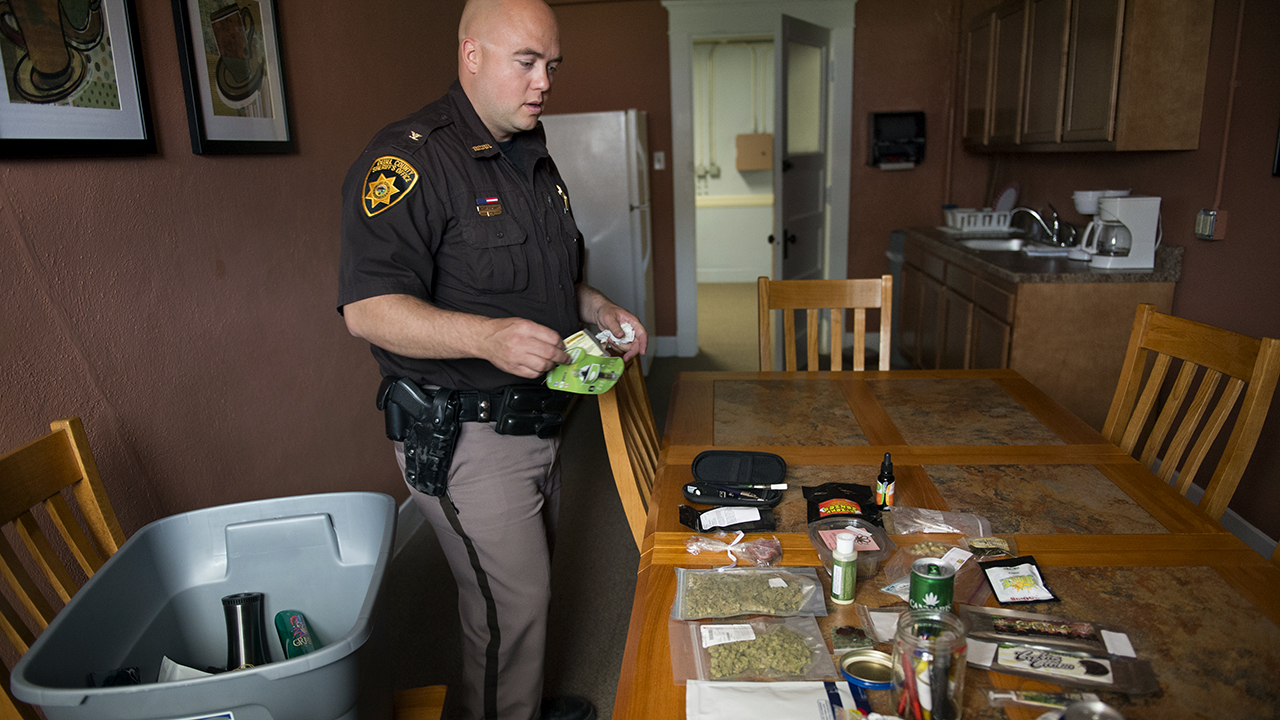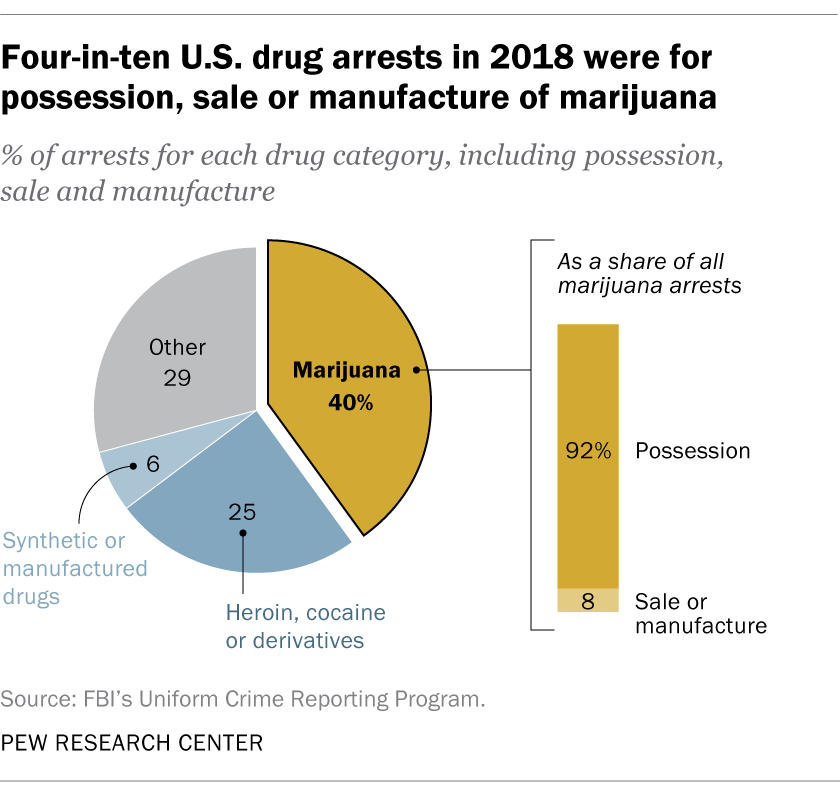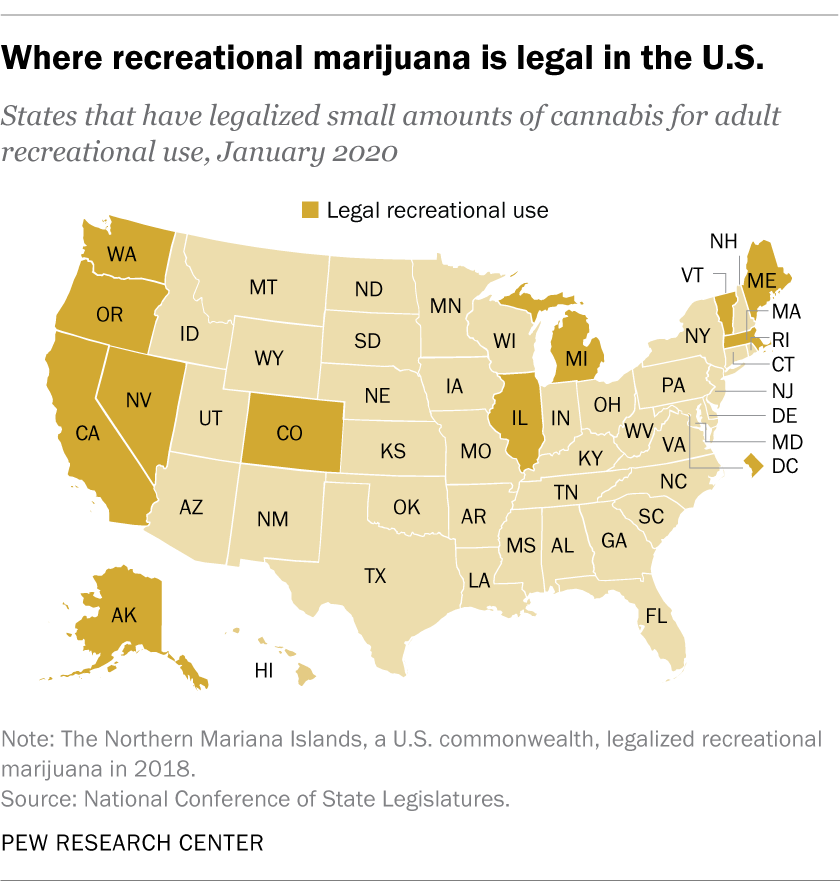
A growing number of states have legalized or decriminalized the possession of small amounts of marijuana. But the drug remains illegal in other states and under federal law – and police officers in the United States still make more arrests for marijuana offenses than for any other drug, according to FBI data.
 Police officers made about 663,000 arrests for marijuana-related offenses in the 50 states and the District of Columbia in 2018, amounting to 40% of the 1.65 million total drug arrests in the U.S. that year (the most recent for which data is available). The second-largest category of drug arrests involved “other” drugs (29%), followed by heroin, cocaine or their derivatives (25%) and synthetic or manufactured drugs (6%). These figures include arrests for possessing, selling or manufacturing each kind of drug. They are based on information submitted to the FBI from thousands of state and local law enforcement agencies, which make the vast majority of arrests in the U.S. each year.
Police officers made about 663,000 arrests for marijuana-related offenses in the 50 states and the District of Columbia in 2018, amounting to 40% of the 1.65 million total drug arrests in the U.S. that year (the most recent for which data is available). The second-largest category of drug arrests involved “other” drugs (29%), followed by heroin, cocaine or their derivatives (25%) and synthetic or manufactured drugs (6%). These figures include arrests for possessing, selling or manufacturing each kind of drug. They are based on information submitted to the FBI from thousands of state and local law enforcement agencies, which make the vast majority of arrests in the U.S. each year.
It’s difficult to assess changes in the number of marijuana arrests over time because the list of state and local police agencies that submit arrest data to the FBI is not identical from year to year. But as a share of all reported drug arrests in the U.S., marijuana arrests have decreased in the last decade and are now at their lowest level in at least 20 years, down from 52% of all drug arrests in 2010.
How we did this
As has long been the case, around nine-in-ten U.S. marijuana arrests are for possessing the drug, rather than selling or manufacturing it. In 2018, 92% of marijuana arrests were for possession and 8% were for selling or manufacturing. The share of marijuana arrests for possessing the drug has inched higher in recent years: In 2011, 87% of marijuana arrests were for possession and 13% were for selling or manufacturing it.
The FBI does not publish state-by-state data on marijuana arrests, but patterns differ somewhat by region. In the West, 15% of all drug arrests were for marijuana-related offenses in 2018, compared with around half in the Northeast (53%), Midwest (50%) and South (49%). Marijuana is legal for recreational use in six of 13 Western states – Alaska, California, Colorado, Nevada, Oregon and Washington – but there were fewer marijuana arrests in the West even before the first state-approved recreational sales in the U.S. began in Colorado and Washington in 2012.
Recent changes in state laws mean that a growing share of Americans live in a jurisdiction where marijuana is legal or decriminalized, at least under state law. Several more states are expected to debate legalization proposals this year.
 Illinois, the nation’s sixth most populous state, this month began allowing the sale of marijuana for recreational use. It joined 10 other states and the District of Columbia in legalizing small amounts of the drug for adult recreational use, according to the National Conference of State Legislatures (NCSL). Together, these jurisdictions are home to 29% of the U.S. adult population. To coincide with the new law, Illinois Gov. J.B. Pritzker issued more than 11,000 pardons to people previously convicted of low-level marijuana offenses in the state.
Illinois, the nation’s sixth most populous state, this month began allowing the sale of marijuana for recreational use. It joined 10 other states and the District of Columbia in legalizing small amounts of the drug for adult recreational use, according to the National Conference of State Legislatures (NCSL). Together, these jurisdictions are home to 29% of the U.S. adult population. To coincide with the new law, Illinois Gov. J.B. Pritzker issued more than 11,000 pardons to people previously convicted of low-level marijuana offenses in the state.
Another 26 states and the District of Columbia have decriminalized small amounts of marijuana. Decriminalization differs from legalization in that it is still against the law to possess the drug, but violations for small amounts intended for personal consumption tend to be civil or local infractions rather than state-level crimes that come with the possibility of incarceration.
Meanwhile, 33 states and the District of Columbia (as well as other U.S. jurisdictions including Guam, Puerto Rico and the U.S. Virgin Islands) have legalized marijuana for medical purposes, according to NCSL.
Public support for marijuana legalization has steadily increased in recent years. In a Pew Research Center survey last September, two-thirds of U.S. adults said marijuana should be legal, up from around half (52%) five years earlier. The same survey found that 59% of adults believe marijuana should be legal for medical and recreational use, while 32% say it should be legal for medical use only. Just 8% of adults said it should not be legal under any circumstances.
Of course, just because a state has legalized or decriminalized marijuana does not mean its residents are immune from being arrested for having it. Among other things, people in legal marijuana states can face arrest for possessing more than the authorized limit. And since marijuana remains illegal federally, U.S. law enforcement agencies such as the Drug Enforcement Administration can make arrests for marijuana offenses, too.

No comments:
Post a Comment